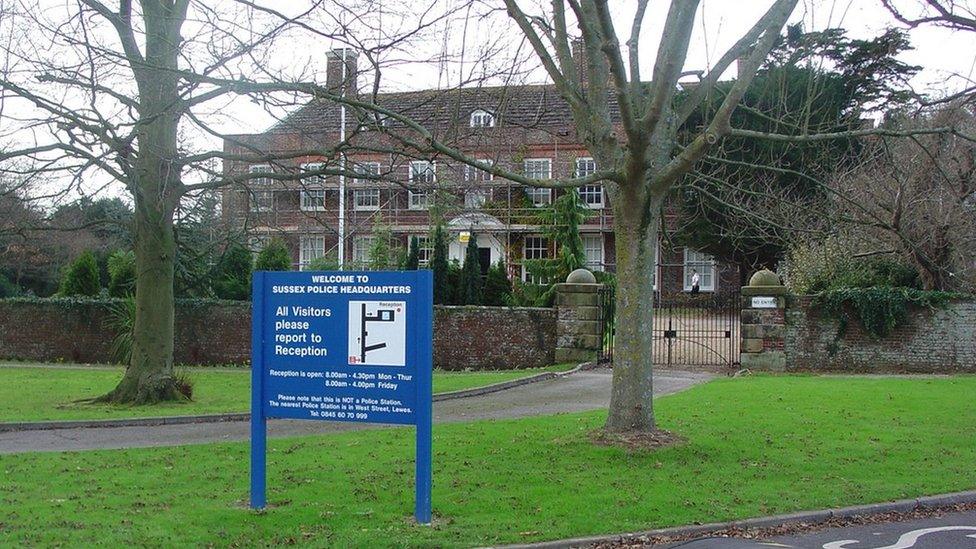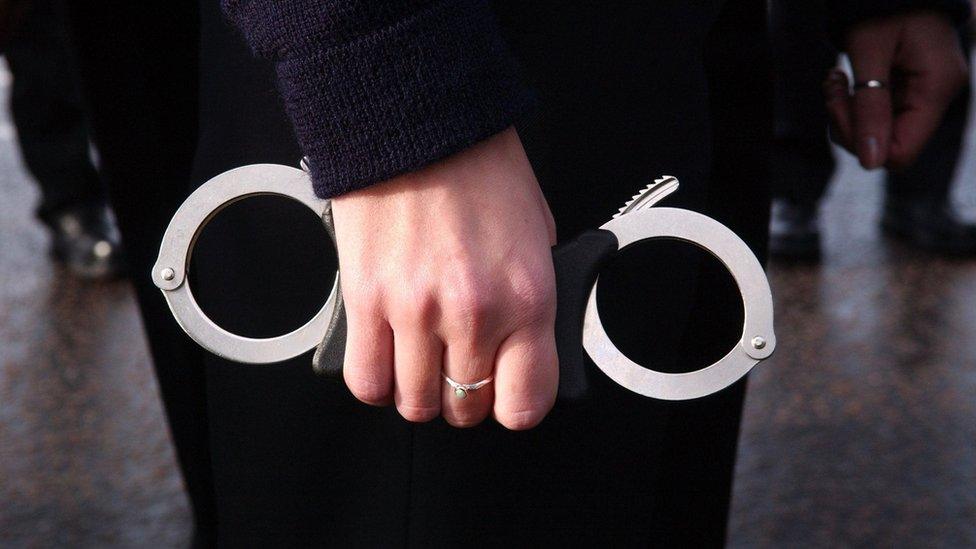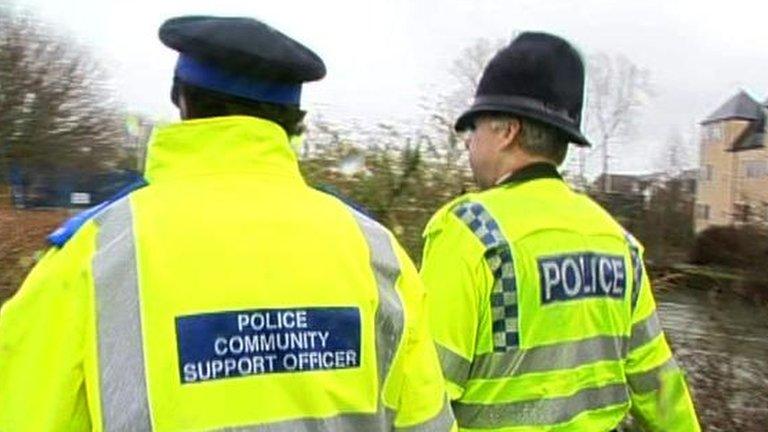Sussex Police Federation defends spit-hood use on disabled girl
- Published

The police watchdog said the force had failed to respond effectively to the needs of a vulnerable child
A young girl who was held in a mesh spit-hood, leg straps and handcuffs had "displayed a high level of violence", the Police Federation has said.
On Wednesday Sussex Police's acting deputy chief constable said the force's use of the hood on the 11-year-old child "wasn't acceptable".
Her mother described the treatment as "degrading and barbaric".
But the Sussex branch of the federation said the actions were necessary to stop the girl harming herself or others.
In a report into the arrest of the girl, who has a neurological disability, the Independent Police Complaints Commission (IPCC) found 11 officers had misconduct cases to answer.
'Slightly ironic'
However, the IPCC told the BBC it was satisfied several officers were given "management advice and training" instead.

The girl was restrained with handcuffs, leg restraints and a mesh anti-spit hood
The federation said it was "disappointed" with the way the officers involved had been portrayed and it believed "other public bodies could and should" have dealt with the girl.
It said it was "sad to note yet again the police service is the emergency service of last resort".
The child's mother told BBC 5 live her daughter's disability meant she could behave in very challenging ways, but "what she needed was patience, respect and the support of her mother".
The federation said it was "slightly ironic it was her mother who felt the need to call the police on several occasions".
In its report, external, the IPCC said that, between 2 February and 2 March 2012, the girl was arrested three times and detained under the Mental Health Act once.
The federation said: "When someone of any age or mental capacity displays violence towards themselves or others, it is not practical to carry out a health assessment there and then and they are restrained to prevent injury."
- Published8 June 2016

- Published8 June 2016

- Published8 February 2013
